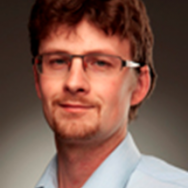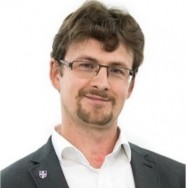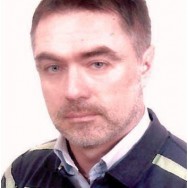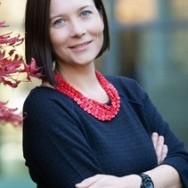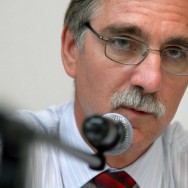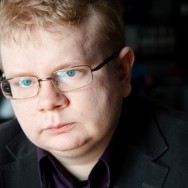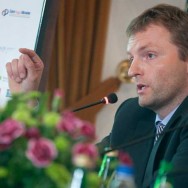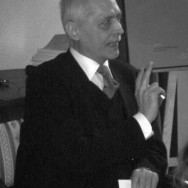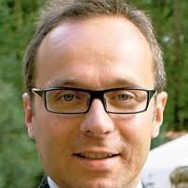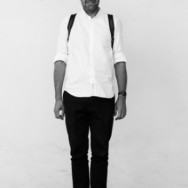Received his PhD in sociology from Masaryk University in Brno, the Czech Republic, where he worked as Assistant Professor at the Department of Media Studies and Journalism, Faculty of Social Studies. Between 2009 and 2013 he was Senior Research Fellow at the Department of Politics and International Relations, University of Oxford, working on an ERC-funded project Media and Democracy in Central and Eastern Europe. He moved to Prague in 2013, having been appointed a Senior Researcher at the Institute of Communication Studies and Journalism, Charles University. There, he established the Political Communication Research Group (http://www.polcore.cz), which focuses on the role of social media in political communication and civic participation. In 2016 he joined the Department of Social Studies, Loughborough University, becoming Lecturer and member of the new Centre for Research in Communication and Culture. His research interests encompass political communication and the role of new media, media systems in Central and Eastern Europe, media ownership and globalization. A member of the ECREA Executive Board since 2015 and Chair of the ECREA Central and Eastern European Network.
Experts
Václav Štětka
Václav Štětka
Dr Václav Štětka is Reader in Comparative Political Communication at the School of Social Sciences and Humanities, Loughborough University, where he has been working since 2016. Previously he has held research and academic posts at Masaryk University in Brno, Charles University in Prague, and the University of Oxford. His current research interests encompass political communication in the digital environment, the dissemination and impact of mis/disinformation, and the relationship between media and democracy in post-transition countries. He has been contributing to several other international research projects and networks, including Media Pluralism Monitor (European University Institute, Florence) or Digital News Report (University of Oxford). His new book "The Illiberal Public Sphere: Media in Polarized Societies" (with S.Mihelj) is coming out in July 2024 (Palgrave, Open Access).
Natasza Styczyńska
Dr Natasza Styczyńska is an Assistant Professor at the Institute of European Studies of the Jagiellonian University in Kraków (Poland). Her academic interests include party politics, populism, Euroscepticism and European Integration in Central and Eastern Europe and the Balkans. She leads JU team in H2020 REGROUP Rebuilding Governance and Resilience out of the Pandemic research project and is a director of studies of Una Europa Joint BA in European Studies at Jagiellonian. Previously she has been engaged in research within two H2020 projects: ‘POPREBEL - Populist rebellion against modernity in 21st-century Eastern Europe: neo-traditionalism and neo-feudalism’ (2019-2022) and ‘EU3D - EU Differentiation, Dominance and Democracy’ (2019-2023). She has been a visiting researcher at University College London, the University of Vienna, and the University of Belgrade, as well as a visiting lecturer at universities across Europe, Asia, North Africa,
and South America.
Andrzej Styliński
A long-time correspondent for the Associated Press, the world’s largest and oldest news agency, and the head of the AP’s operations in Poland. He has reported on the fall of communism in the Eastern Europe and various aspects of the region’s political, economic and social transition after 1989. In February 2004, following 20 years with the AP, moved to work as television news editor for TVN24, Poland’s first all-news television. In April 2005, joined Siemens Sp. z o. o., the global concern’s Polish regional company, as the PR director and press spokesman.
Michał Sutowski
Polish political commentator, editor and translator; activist of Krytyka Polityczna since 2007 and coordinator of the Institute for Advanced Study in Warsaw since 2012. He obtained his MA in political science at the College of Inter-Faculty Studies in the Humanities, at the University of Warsaw in 2009. He has translated numerous high-profile books, including some of Ulrich Beck’s, Michael Kazin's and Manuel Castells’, into Polish. He is the co-author of books: Żyj i pozwól żyć (an interview with Agata Bielik-Robson) and Związki przyjacielskie (an interview with Ludwika Wujec) and the editor of Pisma polityczne by Jacek Kuroń. As a commentator on political and social issues, as well as political economy he has written for some of Poland’s biggest newspapers, such as Gazeta Wyborcza, and Rzeczpospolita, with his main fields of interest being European integration, German politics, and the history of ideas, particularly in recent Polish and Central European history.
Martin Svárovský
Deputy Chief of Mission at the Embassy of the Czech Republic to Poland. Graduated in 1996 from the Faculty of Philosophy and Arts at Charles University in Prague (B.A. in History), in 1999 graduated from the Faculty of Social Sciences at Charles University in Prague (M.A. in German Studies). In years 1997/1998 he did the Bundestag Internship Program. In 1998 was at Fridrich Wilhelms University in Bonn. In 1999 worked within an Internship at the Office of the President of the Czech Republic and from 1999 has been working at the Czech MFA. Until 2002 served as a Head of unit for Visegrad Group and non-German speaking countries at the Central European Department. In years 2002 – 2006 he served as a Deputy Chief of Mission at the Czech Embassy in Budapest. From 2007 to 2008 Deputy Director of the Central European Department of the MFA, from 2008 until 2010 Deputy Director of the Strategy and Analyses Department. From August 2010 at Embassy of the Czech Republic to Poland.
Paweł Świderski
Honorary Consul of the Republic of Brazil in Krakow. Graduated in Oriental Philology from the Jagiellonian University, and in European Studies from the Pułtusk School of Humanities. PhD in Management. His work experience include supervising implementation of development plans, diplomatic representation of Poland, creation of bilateral economic cooperation at the level of countries and regions, economic analyses, negotiating international agreements in the field of economic cooperation and supervising execution of international commercial and industrial cooperation agreements. Lecturer at the Jagiellonian University in the field of strategy of development and human resources; Chairman of the Foundation for the Jagiellonian University; consultant in local government.
Paweł Świeboda
Founder and head of demosEuropa – the Centre for European Strategy. He graduated in 1994 from the London School of Economics (International Relations). In 1996 he became an adviser on European policy to the President of Poland and later headed the European Integration Office in the President’s Chancellery. Between 2001 and 2006 he served as the Director of the European Union Department in the Foreign Ministry. Swieboda is a member of several expert commissions including the Lisbon Council and the Commission on Europe after 50 set up by Chatham House. He writes a regular column on foreign policy in the Gazeta Wyborcza daily.
Grzegorz Święch
Management specialist with over 25 years of experience gained at all levels of the different organizations. The main managing experience was acquired at Eurobank (Managing Director), where he managed the structure of more than 2,000 employees. CEO in the Academic Incubators of Entrepreneurship, where he deals with development of the projects in the start-up phase (seed investment found). He created and continue development of the biggest incubators structure in Poland, creating base for startup community – Business Link. Currently, is VP/Partner in New Motivations – one of the biggest Polish training and development company.

